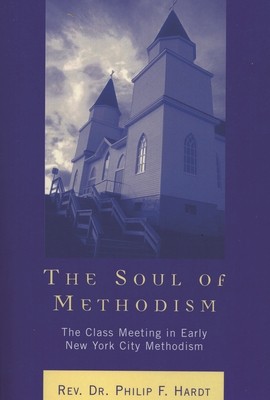
- We will send in 10–14 business days.
- Author: Philip F Hardt
- Publisher: University Press of America
- ISBN-10: 0761831193
- ISBN-13: 9780761831198
- Format: 15.4 x 23.2 x 1.9 cm, softcover
- Language: English
- SAVE -10% with code: EXTRA
Reviews
Description
A weekly 'class meeting' among Methodists in early 19th-century New York formed the basis for growth and unity in the small Christian sect. Author Rev. Dr. Philip F. Hardt describes these meetings as a means to close personal relationships among class members. They also provided a place in which lay leadership could emerge and monitor behavior among members. Hardt connects the decline in Methodist membership over the years with the dissolution of the weekly meeting. This book advocates a return to the meetings as a means to increase church membership. It is Rev. Hardt's belief that a weekly meeting can revitalize the church's efforts to initiate people into the faith and assimilate them into the body of Christ.
EXTRA 10 % discount with code: EXTRA
The promotion ends in 15d.19:36:48
The discount code is valid when purchasing from 10 €. Discounts do not stack.
- Author: Philip F Hardt
- Publisher: University Press of America
- ISBN-10: 0761831193
- ISBN-13: 9780761831198
- Format: 15.4 x 23.2 x 1.9 cm, softcover
- Language: English English
A weekly 'class meeting' among Methodists in early 19th-century New York formed the basis for growth and unity in the small Christian sect. Author Rev. Dr. Philip F. Hardt describes these meetings as a means to close personal relationships among class members. They also provided a place in which lay leadership could emerge and monitor behavior among members. Hardt connects the decline in Methodist membership over the years with the dissolution of the weekly meeting. This book advocates a return to the meetings as a means to increase church membership. It is Rev. Hardt's belief that a weekly meeting can revitalize the church's efforts to initiate people into the faith and assimilate them into the body of Christ.


Reviews